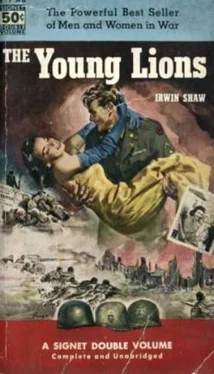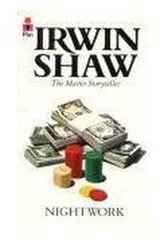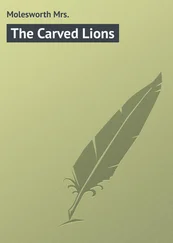Irwin Shaw - The Young Lions
Здесь есть возможность читать онлайн «Irwin Shaw - The Young Lions» весь текст электронной книги совершенно бесплатно (целиком полную версию без сокращений). В некоторых случаях можно слушать аудио, скачать через торрент в формате fb2 и присутствует краткое содержание. Жанр: Классическая проза, на английском языке. Описание произведения, (предисловие) а так же отзывы посетителей доступны на портале библиотеки ЛибКат.
- Название:The Young Lions
- Автор:
- Жанр:
- Год:неизвестен
- ISBN:нет данных
- Рейтинг книги:4 / 5. Голосов: 1
-
Избранное:Добавить в избранное
- Отзывы:
-
Ваша оценка:
- 80
- 1
- 2
- 3
- 4
- 5
The Young Lions: краткое содержание, описание и аннотация
Предлагаем к чтению аннотацию, описание, краткое содержание или предисловие (зависит от того, что написал сам автор книги «The Young Lions»). Если вы не нашли необходимую информацию о книге — напишите в комментариях, мы постараемся отыскать её.
The Young Lions — читать онлайн бесплатно полную книгу (весь текст) целиком
Ниже представлен текст книги, разбитый по страницам. Система сохранения места последней прочитанной страницы, позволяет с удобством читать онлайн бесплатно книгу «The Young Lions», без необходимости каждый раз заново искать на чём Вы остановились. Поставьте закладку, и сможете в любой момент перейти на страницу, на которой закончили чтение.
Интервал:
Закладка:
"Yes, Sir," Christian said cautiously.
Hardenburg looked around him carefully, then leaned a little closer to Christian. "At last," he said, the jubilance plain in his voice, "at last, it's happened. We're moving." He turned his head sharply and looked over his shoulder. The clerk, who was the only other person in the room, was thirty feet away. "Africa," Hardenburg whispered, so low that Christian barely heard him.
"The Africa Corps." He grinned widely. "In two weeks. Isn't it marvellous?"
"Yes, Sir," Christian said flatly, after a while.
"I knew you'd be pleased," said Hardenburg.
"Yes, Sir."
"There'll be a lot to do in the next two weeks. You're going to be a busy man. The Captain wanted to cancel your leave, but I felt it would do you good, and you could make up for the time you'd lost…"
"Thank you very much, Sir," said Christian.
"At last," said Hardenburg triumphantly, rubbing his hands.
"At last." He stared unseeingly through the window, his eyes on the dust clouds rising from the armoured tread on the roads of Libya, his ears hearing the noise of gunfire on the Mediterranean coast. "I was beginning to be afraid," Hardenburg said softly, "that I would never see a battle." He shook his head, raising himself from his delicious reverie. "All right, Sergeant," he said, in his usual, clipped voice. "I'll want you back here in an hour."
"Yes, Sir," said Christian. He started to go, then turned.
"Lieutenant," he said.
"Yes?"
"I wish to submit the name of a man in the 147th Pioneers for disciplinary action."
"Give it to the clerk," said the Lieutenant. "I'll send it through the proper channels."
"Yes, Sir," said Christian and went over to the clerk and watched him write down the name of Private Hans Reuter, unsoldierly appearance and conduct, complaint brought by Sergeant Christian Diestl.
"He's in trouble," the clerk said professionally. "He'll get restricted for a month."
"Probably," said Christian and went outside. He stood in front of the barracks door for a moment, then started for Corinne's house. Half-way there, he halted. Ridiculous, he thought. What's the sense in seeing her now?
He walked slowly back along the street. He stopped in front of a jeweller's shop, with a high, small window. In the window there were some small diamond rings and a gold pendant with a large topaz on the end of it. Christian looked at the topaz, thinking: Gretchen would like that. I wonder how much it costs.
CHAPTER EIGHT
NOAH stood among the patriots, waiting his turn to be interviewed by the recruiting officer. He had taken Hope home late and it had been a bad time when he told her what he was going to do, and he had slept poorly, with one of his old dreams about being put up against a wall and machine-gunned, and he had risen in the dark to go down to Whitehall Street to enlist, hoping to be early enough to avoid getting caught in the crowd he was sure would be besieging the place. As he looked around at the others he wondered how the draft had missed them all, but that was almost the limit of speculation his weary mind could manage at the moment. In the days before the attack he had tried not to think it out, but, remorselessly, his conscience had made the decision for him. If the war began, he could not hesitate. As an honourable citizen, as a believer in the war, as an enemy of Fascism, as a Jew… He shook his head. There it was again. That should have nothing to do with it. Most of these men were not Jews, and yet here they were at six-thirty of a winter's morning, the second day of the war, ready to die. And they were better, he knew, than they sounded. The rough jokes, the cynical estimates, were all on the surface, embarrassed attempts to hide the true depths of the feeling that had brought them to this place. As an American, then. He refused to put himself at this moment into any special category. Perhaps, he thought, I will ask to be sent to the Pacific. Not against Germany. That would prove to them that it wasn't because he was a Jew… Nonsense, nonsense, he thought, I'll go where they send me.
A door opened and a fat sergeant with a beery face came out and shouted irritably, "All right, all right, you guys. Stop spittin' on the floor, this is government property. And stop shovin'. Nobody's goin' to be left behind. The Army's got plenty of room for everybody. Come in, one by one, through this door, when I give you the word. And leave your bottles outside. This is a United States Army installation."
It took all day. He was shipped to Governor's Island in an Army ferry that had a General's name on it. He stood on the crowded deck, his nose running with the cold, watching the harbour traffic on the slate waters. He wondered what obscure act of heroism or flattery the General had done in his day to deserve this minute honour. The Island was busy and thronged with soldiers who were grimly carrying guns, as though they expected to have to repel a landing party of Japanese marines at any moment.
Noah had told Hope he would try to call her at her office some time during the day, but he didn't want to lose his place in the slow line that went past the bored, short-tempered doctors.
"Christ," the man next to Noah said, looking down the long line of naked, scrawny, flabby aspirants to glory, "is this what's going to defend the country? Christ, we've lost the war."
Noah grinned a little self-consciously, and threw his shoulders back, measuring himself secretly in his nakedness against the others. There were three or four young men who looked as though they had played football, and one enormous man with a clipper in full sail tattooed on his chest, but Noah was pleased to see that he compared favourably with most of the rest. He had become acutely conscious of his body in the last few months. The Army, he thought as he waited to get his chest X-rayed, will probably build me up considerably. Hope will be pleased. Then he grinned. It was an elaborate, roundabout way to put yourself in condition, to have your country go to war against the Empire of Japan.
The doctors paid little attention to him. His vision was normal, he did not have piles, flat feet, hernia, or gonorrhoea. He did not have syphilis or epilepsy, and in a minute-and-a-half interview a psychiatrist decided he was sane enough for the purposes of modern warfare. His joints articulated well enough to please the Surgeon General and his teeth met in an efficient enough manner to ensure his being able to chew Army food, and there were no scars or lesions evident anywhere on his skin.
He dressed, glad to get bis clothes on once again, thinking, tomorrow it will be a uniform, and went up, in the slow-moving line, to the sallow, harassed-looking medical officer who sat at a yellow desk, stamping 1A, Limited Service, or Rejected, on the medical records.
I wonder, Noah was thinking, as the doctor bent over his record, I wonder if I'll be sent to some camp near New York so I can see Hope on passes…
The doctor picked up one of the stamps and tapped it several times on a pad. Then he hit Noah's record and pushed it towards him. Noah looked down at it. REJECTED was smeared across it in blurred purple letters. Noah shook his head and blinked. It still said REJECTED.
"What…?" he began.
The doctor looked up at him, not unkindly. "Your lungs, son," he said. "The X-rays show scar tissue on both of them. When did you have T. B.?"
"I never had T. B."
The doctor shrugged. "Sorry, son," he said. "Next."
Noah walked slowly out of the building. It was evening now, and the wind was cruel and full of December as it swept off the harbour across the old fort and the barracks and parade ground that stood guard over the sea approaches to the city. The city itself was a clot of a million lights across the dark stretch of water. New levies of draftees and volunteers came pouring off the ferries, shuffling off to the waiting doctors and the final purple stamps.
Читать дальшеИнтервал:
Закладка:
Похожие книги на «The Young Lions»
Представляем Вашему вниманию похожие книги на «The Young Lions» списком для выбора. Мы отобрали схожую по названию и смыслу литературу в надежде предоставить читателям больше вариантов отыскать новые, интересные, ещё непрочитанные произведения.
Обсуждение, отзывы о книге «The Young Lions» и просто собственные мнения читателей. Оставьте ваши комментарии, напишите, что Вы думаете о произведении, его смысле или главных героях. Укажите что конкретно понравилось, а что нет, и почему Вы так считаете.











